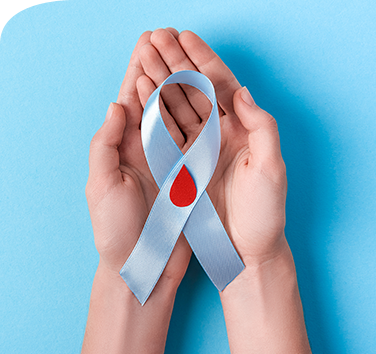
PROGRAM DESIGN
Why we are doing this
India is often referred to as the diabetes capital of the world. There are very few initiatives in the country to support research and management of the disease. The Hinduja Foundation Type 1 Diabetes (T1D) Program will accrue significant benefits to society while staying true to the principles and values held by the Hinduja Group at large. It will have a transformative impact on our collective understanding of the disease, improve awareness among patients and educate caregivers.
The Hinduja Foundation’s T1D Program is composed of three main components:
Treatment support
Research
The Hinduja Foundation will invest in various research projects in India and abroad, with an emphasis on those that combine cost-efficiency with the potential to make the greatest impact. India-centric research will be given priority. It is anticipated that multiple research collaborations will be established with universities and research centers across the country and the world, to build an eco-system of partnership and mutual exchange of ideas and learnings, and facilitate further research on T1D.
Education and Awareness
There exists enormous potential for upskilling and training healthcare professionals to fill the gap in the knowledge and management of T1D. The Hinduja Foundation will actively support projects that enable training of doctors, nurses and paramedics.
Patient education is another area of felt need. The Foundation will support Type 1 Diabetes awareness drives through the various school initiatives supported by the Group, and through the Program's partners.

Healthcare Financing
Sustained funding is critical, both for treatment support to patients in need and for long-term research.
Major Findings
The limited data available suggests that the prevalence of T1D in India is variable between 3 to 18 per 1,00,000 children.
Program Projections
The Hinduja Foundation T1D program is successfully positioned to have multiple times the return on all philanthropic investment.
T1D Program Partner Centres

Multi-centric Type 1 Diabetes Registry
- The Hinduja Foundation would be instrumental in creating a multi-centric registry of Type 1 Diabetes patients.
- Direct patient treatment support will be offered in MDRF Chennai, KEM Pune and PDHH Mumbai.
- The Foundation would enter into multiple partnerships and collaborations across India and the globe to serve as centers for the Type 1 registry.
Projected Outcomes:
- Significant reduction in morbidity and mortality.
- Account of clinical progression of T1D in India.
- Enhancing scientific evidence and literature on Type 1 Diabetes.
- We are already supporting more than 450 patients and our goal is to reach 1000 patients in the next 5 years.
- The extensive rural outreach program of the MDRF in Tamil Nadu would be leveraged to disseminate information about the program.